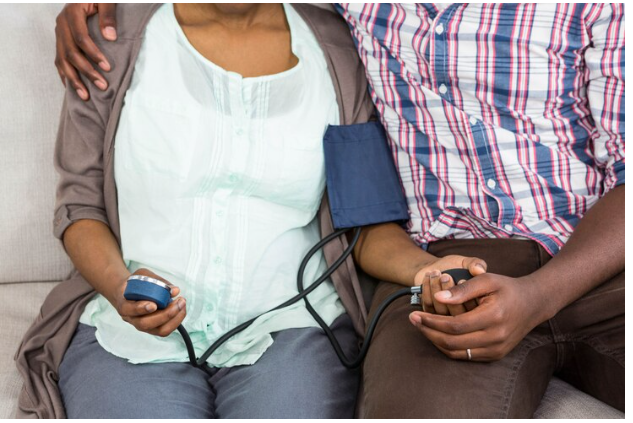What Are High Blood Pressure Complications During Pregnancy?

What is blood pressure?
Blood pressure is the force of blood pushing against the walls of blood vessels called arteries. The arteries bring blood from the heart to your lungs, where it picks up oxygen and then moves to your organs and tissues. The organs and tissues use the oxygen to power their activities. Blood vessels called veins return the blood to the heart.
High blood pressure, also called hypertension, is very common. In the United States, high blood pressure happens in one in every 12 to 17 pregnancies among women ages 20 to 44.3.
What do the blood pressure numbers mean?
A blood pressure reading has two numbers separated by a slash. A blood pressure reading of 110/80 mm Hg, for instance, is referred to as “110 over 80.” The first number is the pressure against the artery walls when the heart contracts. This is called the systolic blood pressure. The second number is the pressure against the artery walls when the heart relaxes between contractions. This is called the diastolic blood pressure.
In Nigeria it is estimated that between five and 10 percent of pregnancies are complicated by hypertensive disorders in pregnancy (HDP) and it results in more admissions in the antenatal period than any other disorder. Hypertensive disorder in pregnancy is one of the leading causes of maternal mortality in this centre. High blood pressure in pregnancy has become more common today. However, with good blood pressure control, you and your baby are more likely to stay healthy.
The most important thing to do is talk with your health care team about any blood pressure problems so you can get the right treatment and control your blood pressure -before you get pregnant. Getting treatment for high blood pressure is important before, during, and after pregnancy.
What are high blood pressure complications during pregnancy?
Complications from high blood pressure for the mother and infant can include the following:
For the mother: Preeclampsia external, eclampsia external, stroke, the need for labor induction (giving medicine to start labour to give birth), and placental abruption (the placenta separating from the wall of the uterus).
For the baby: Preterm delivery (birth that happens before 37 weeks of pregnancy) and low birth weight (when a baby is born weighing less than five pounds, eight ounces). The mother’s high blood pressure makes it more difficult for the baby to get enough oxygen and nutrients to grow, so the
Why is high blood pressure a problem during pregnancy?
High blood pressure (also called hypertension) can lead to health problems at any time in life. High blood pressure usually does not cause symptoms. During pregnancy, severe or uncontrolled high blood pressure can cause problems for you and your fetus.
Some women have high blood pressure before they get pregnant. Others develop it for the first time during pregnancy. A serious high blood pressure disorder called preeclampsia also can happen during pregnancy or soon after childbirth.
